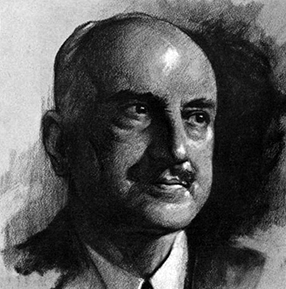The low sandy beach and the thin scrub pine,
The wide reach of bay and the long sky line,—
O, I am far from home!
The salt, salt smell of the thick sea air,
And the smooth round stones that the ebbtides wear,—
When will the good ship come?
The wretched stumps all charred and burned,
And the deep soft rut where the cartwheel turned,—
Why is the world so old?
The lapping wave, and the broad gray sky
Where the cawing crows and the slow gulls fly,—
Where are the dead untold?
The thin, slant willows by the flooded bog,
The huge stranded hulk and the floating log,—
Sorrow with life began!
And among the dark pines, and along the flat shore,
O the wind, and the wind, for evermore!
What will become of man?
This poem is in the public domain. Published in Poem-a-Day on July 31, 2022, by the Academy of American Poets.
“Cape Cod” first appeared in Santayana’s Sonnets and Other Verses (Stone & Kimball, 1894). As Santayana recounts in Persons and Places: The Middle Span (Charles Scribner’s Sons, 1945), the poem originated in a fishing trip with friends to Cape Cod, during which he “never held a rod in [his] hand, and never meant to.” He explains, “I wrote some lines on Cape Cod, of which the poet William Vaughn Moody said that there for once I had been inspired. But that inspiration came only by the way, as on returning we skirted a beach in the gathering twilight. Cape Cod in general has the most cheerful associations in my mind.” The scholar Newton Phelps Stallknecht later wrote about the poem in George Santayana (University of Minnesota Press, 1971) that “language, rhythm, and imagery yield fully to the sense of forlorn exile that is throughout. The scene becomes a haunting symbol of loneliness, an end of the world, whose beauty lives in its very desolation.”

